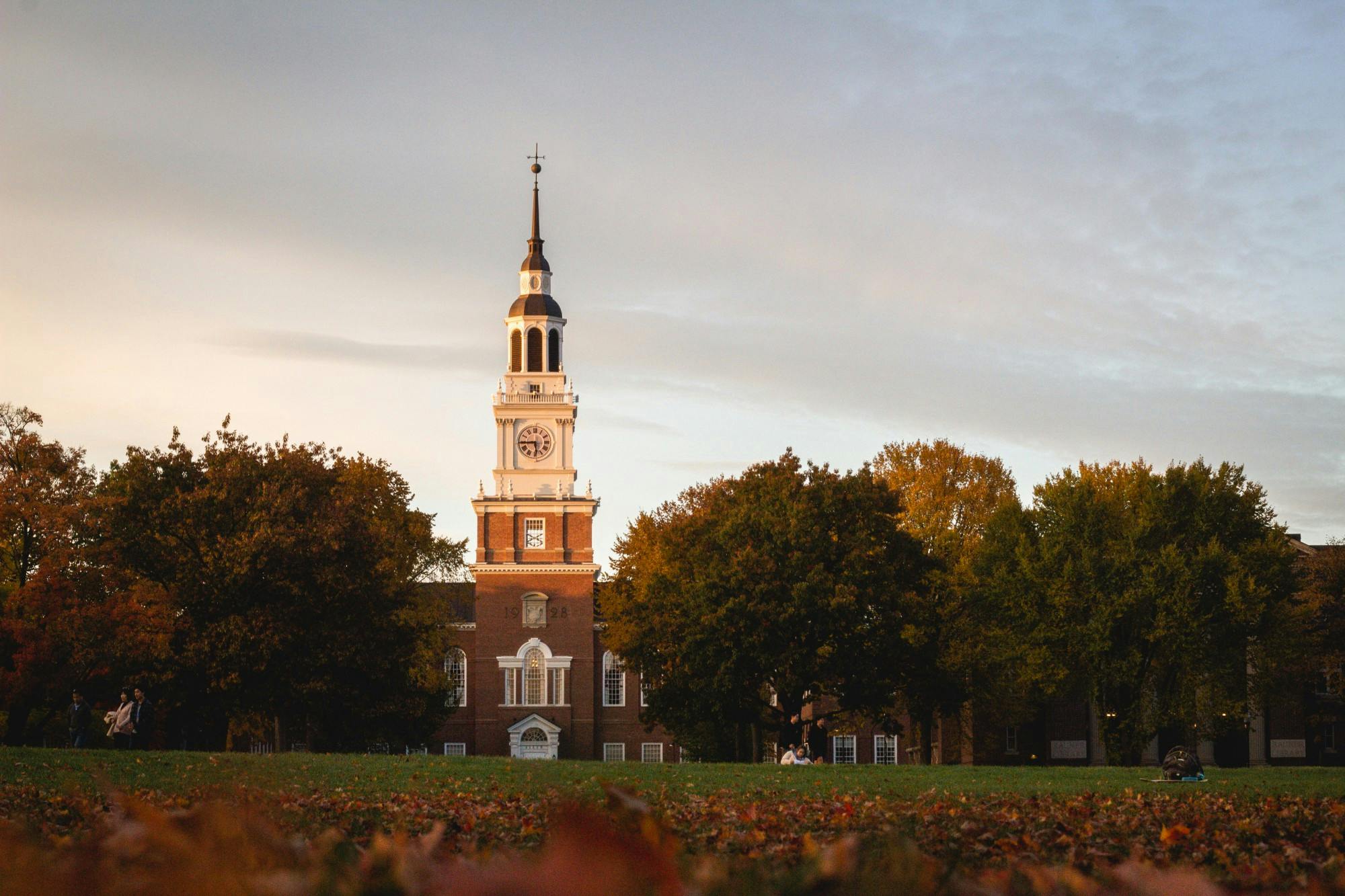On Oct. 30, the Dickey Center for International Understanding hosted prominent Palestinian pollster Khalil Shikaki for an event titled “Who Supports Hamas?” Shikaki discussed his research, which polls Palestinians and Israelis on their political views.
The talk was a part of the Middle East Dialogues — a collaboration between the Dickey Center and Middle Eastern studies and Jewish studies programs that hosts political lectures and discussions. The event, which was held in the Kreindler Conference Hall of the Haldeman Center, drew approximately 60 attendees and was moderated by government professor Benjamin Valentino.
Shikaki and Valentino primarily discussed the effect of the media on Israelis’ and Palestinians’ views. Shikaki explained that Al Jazeera Arabic — which 80% to 85% of West Bankers rely on as their “main source of information” — has not accurately covered the conflict.
“Most Palestinians are either in denial or actually don’t know that Hamas committed atrocities,” Shikaki explained.
Israeli media has a parallel effect on its audiences, according to Shikaki. He explained that many Israeli Jews believe the Israeli army “does not commit atrocities” because they “don’t watch CNN, they don’t watch BBC, they certainly don’t watch Al Jazeera — they watch Israeli TV.”
Conducting ideological surveys can prove to be challenging in Israel and Gaza, Shikaki said.
One of the obstacles to conducting surveys in Palestine is Palestinians’ fear that pollsters are spies and that answering polls honestly will incur political punishment, he explained.
“We remain an undemocratic society and undemocratic political system until today,” he said. “So the difficulty here is how you convince people to talk to you when they might worry that you are a spy for somebody.”
Additionally, northern Gaza has become physically inaccessible as a result of the Israel-Hamas war, making it difficult to reach swaths of the Gazan population, he said.
“The entire northern part of the Gaza Strip is forbidden to go to,” Shikaki said. “… It is these people [Northern Gazans] who, however, have no access to food or water [and] we don’t know the situation there.”
Valentino asked Shikaki about whether protests on American college campuses in the past year have been “detracting from the situation that’s actually going on on the ground in Gaza.” Shikaki replied that the outpouring of American support for Palestinians was “one of the benefits of Oct. 7.”
“There is much greater solidarity with Palestinians throughout the world,” he said. “Israel is becoming under greater criticism than any time before.”
The talk was held one week after two pro-Palestinian protesters were arrested at an event hosting Sen. John Fetterman, D-Pa. Valentino said in an interview after the event that he had expected the talk to be less controversial than Fetterman’s appearance, “partly” because of the “nature” of Shikaki’s work.
“This is exactly the kind of talk that everybody, no matter what side of the issue you’re on, should have learned something from that makes them more able to advance a solution that leads to peace,” Valentino said.
In an interview after the event, Shikaki emphasized the importance of neutrality in his research.
“The only agenda I have is the findings of research, and in this case, joint Israeli-Palestinian research, in which one can see things from both sides,” he said.
Attendee Ryder Zufi ’28, a prospective government and Middle Eastern studies major, said he believes Shikaki’s polling helps contextualize real political issues.
“I feel like his [Shikaki’s] work is really important because that data doesn’t exist in a vacuum,” he said “Policymakers can use that when they’re sitting at the decision table, making policy decisions.”
Attendee Jonah Bard ’27 said he found Shikaki’s advocacy for peace “really cool.”
“In doing this, he brings to light a lot of really important information that most people have no idea about,” he said. “He really does want positive change to happen, and he’s able to use it [polling] in a way that orients and primes the communities for progress to be made.”
Valentino said he hoped that the event underscored the relationship between scholarship and deescalation.
“Students will begin to understand the way that scholarship can contribute to peace in the region,” he said. “… This is what we do. This is our special value added to the problem. And so I hope it becomes clear that there are people doing this incredibly important work that really has a quite direct input into peace.”




